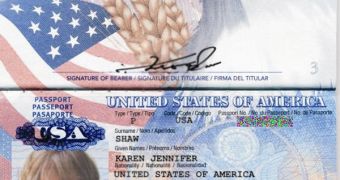If you receive an email from a woman who seems more than willing to help out anyone that needs money, don’t be tempted to reply to it because it’s a scam that could cost you a lot.
419 scams are highly common these days and they’re all designed on the same principle: someone contacts you offering large amounts of money in return for an apparently small fee that’s allegedly needed to complete the transaction.
Graham Cluley has come across an interesting variant in which a widow from New York, Karen Shaw, offers to help anyone in need of money.
“I lost my husband and three kids in fatal accident in 2005. Since then I could not gain myself. However, I will love to help people in need and the business man or woman who need loan and also need money for business,” reads the message written in uppercase letters.
If the first email doesn’t reveal many details, the second one, the one received after the potential victim replies, is far more interesting.
It turns out that the woman wants to help out those in need, but she doesn’t actually have any money. Well, she does have around $10 million (7.6 million EUR), but she can’t access it because of an “issue with the bank.”
Of course, the problem can be easily solved by paying the small debt of $15,000 (11,400 EUR). In return for the amount, Mrs Shaw promises $200,000 (150,000 EUR) “immediately.”
To make everything more legitimate-looking, the email comes with a scanned copy of her passport.
And the plot doesn’t stop here. Even the woman’s lawyer, Churchill Spencer, contacts the potential victim to confirm the legitimacy of the story.
It’s clear that fraudsters will resort to any method in order to make their schemes as convincing as possible, but internauts should keep in mind that today’s technologies can allow scammers to forge anything in a matter of minutes.
So, if you come across such an email, delete it immediately and don’t give the con artists the opportunity to trap you in their web of lies. Remember: if it sounds too good to be true, then it usually is.

 14 DAY TRIAL //
14 DAY TRIAL //